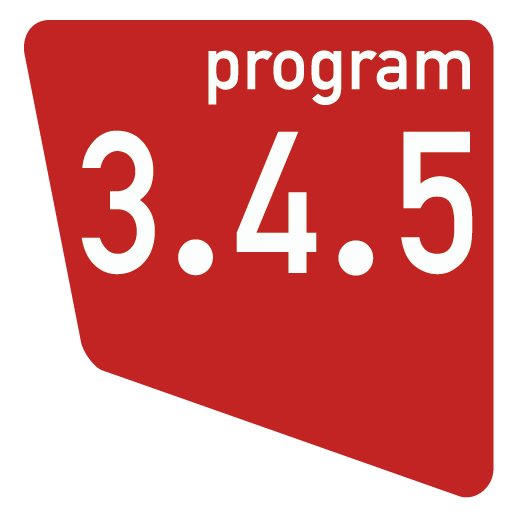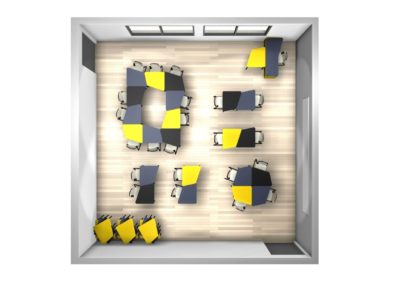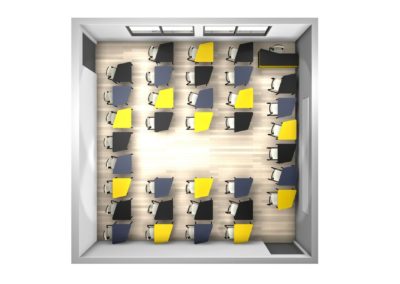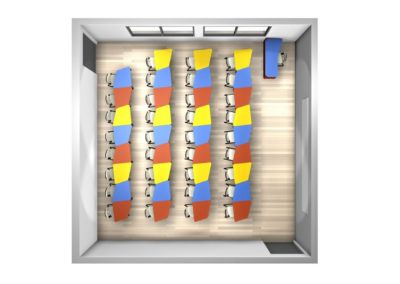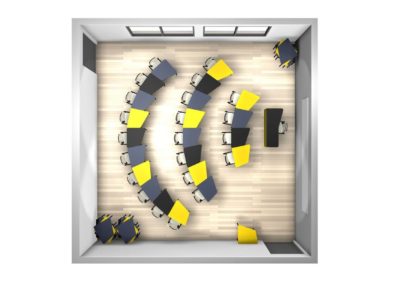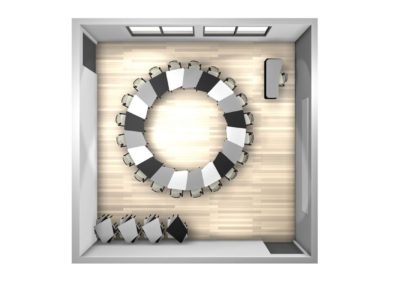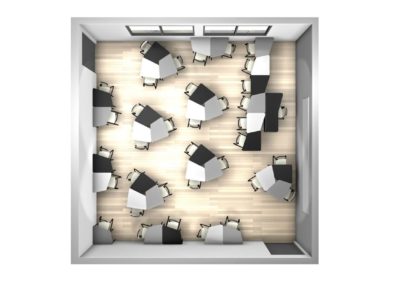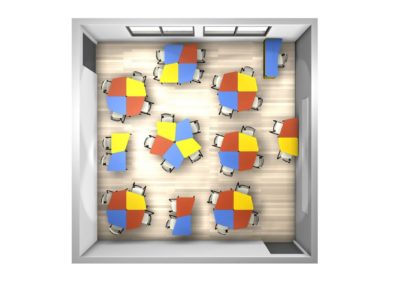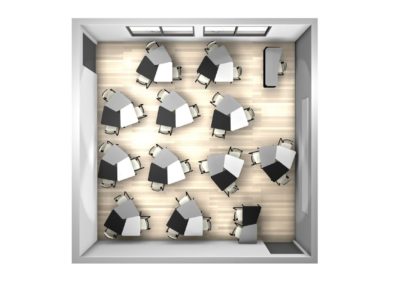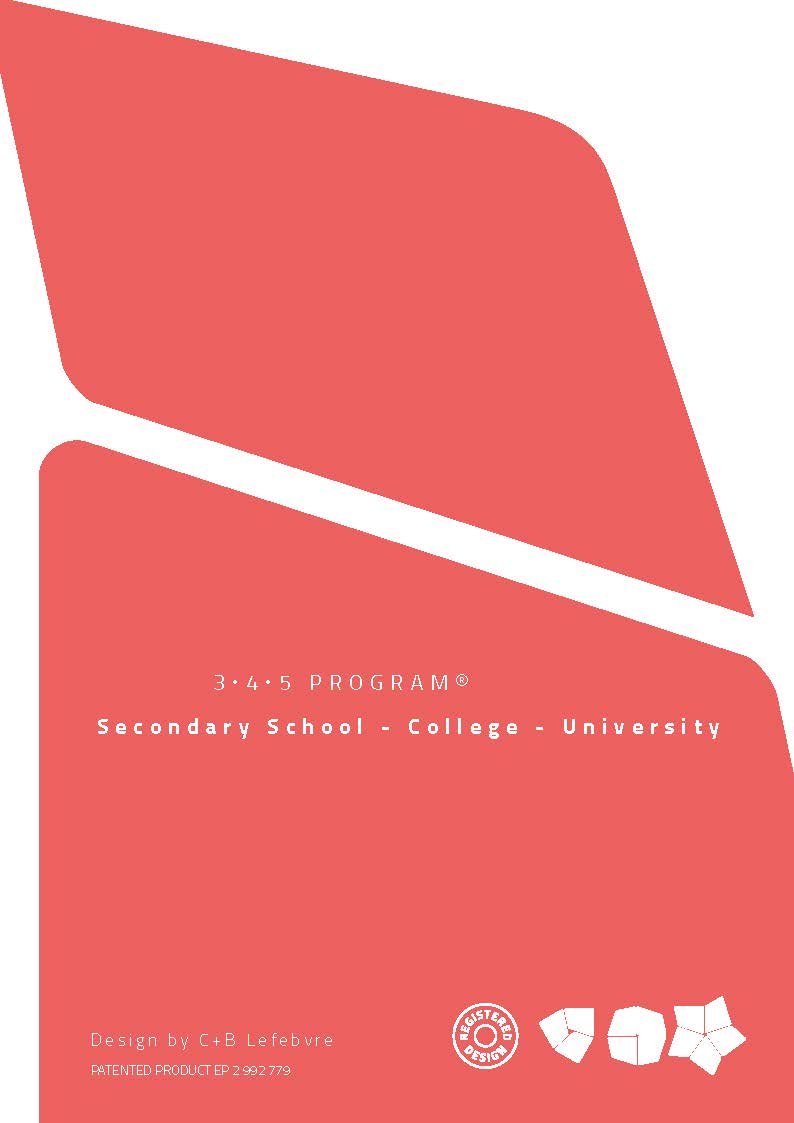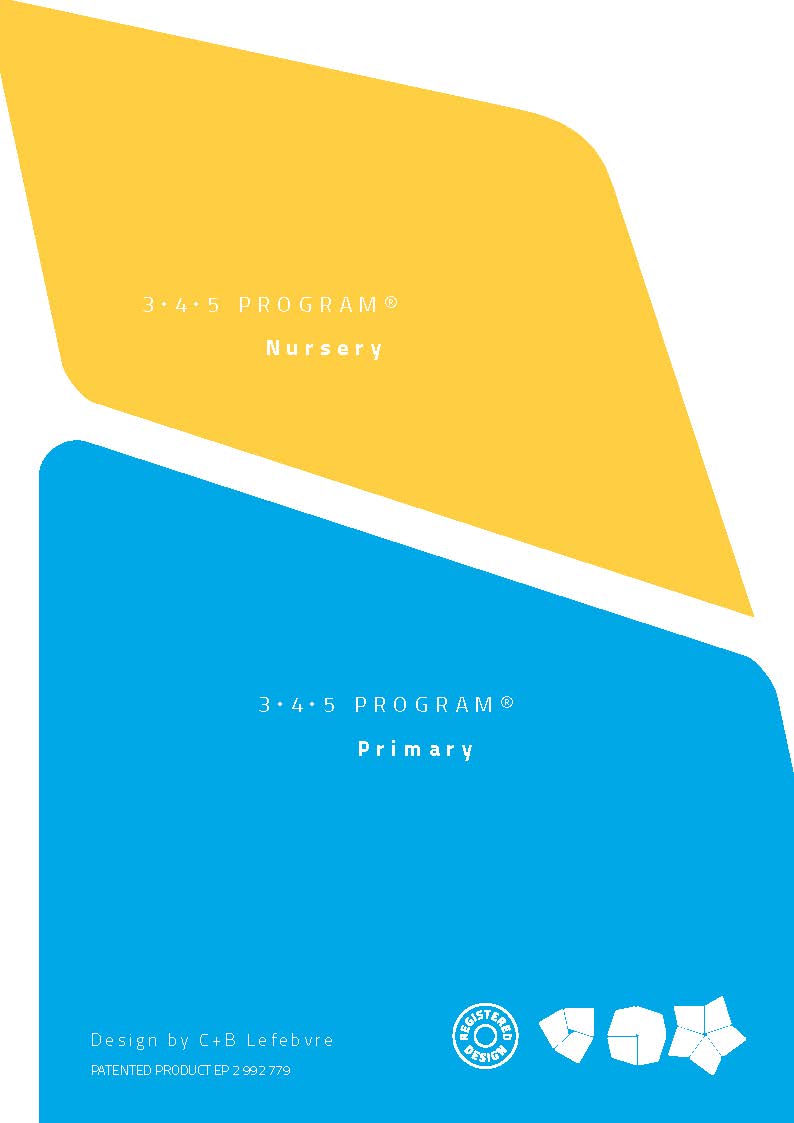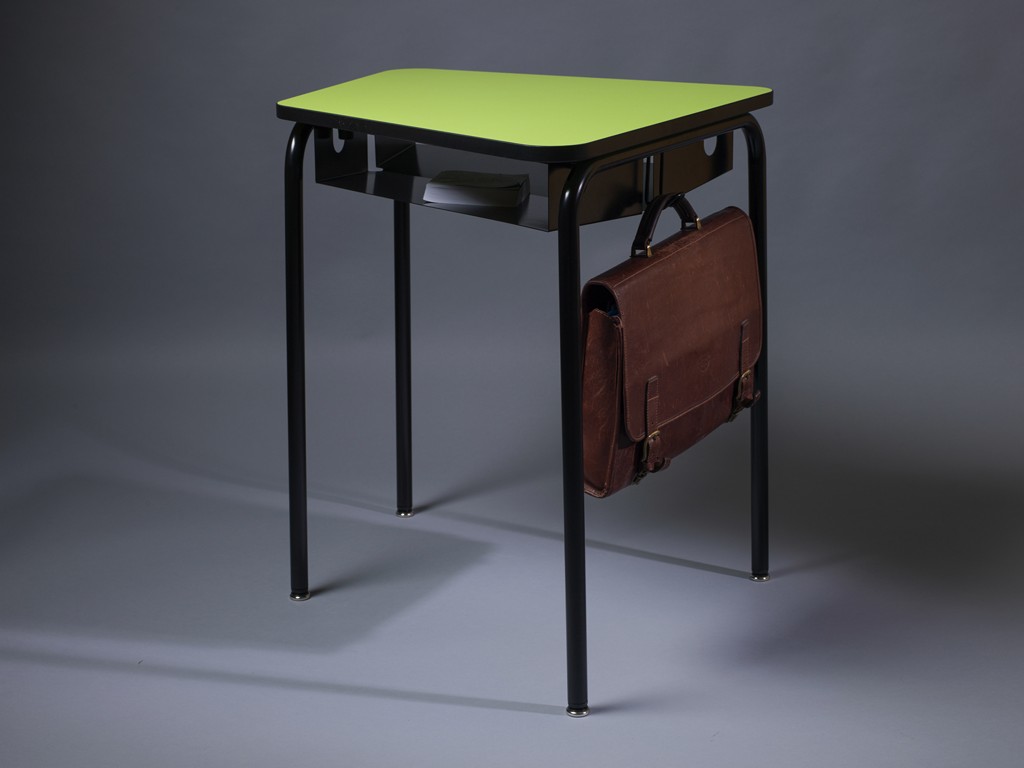
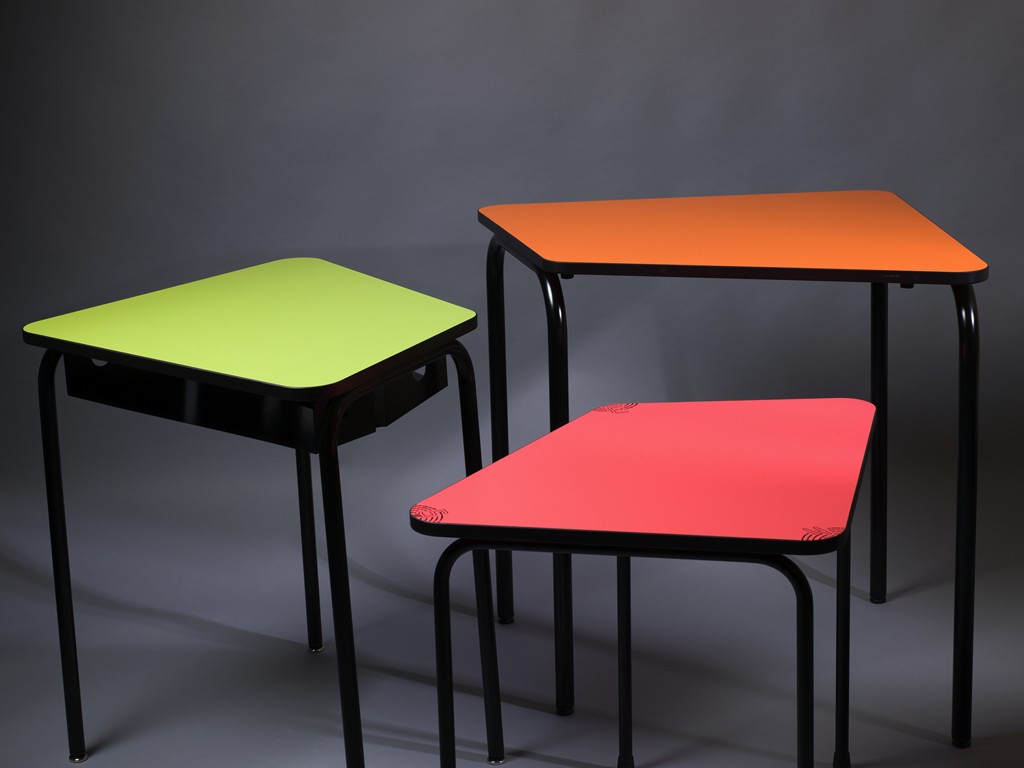
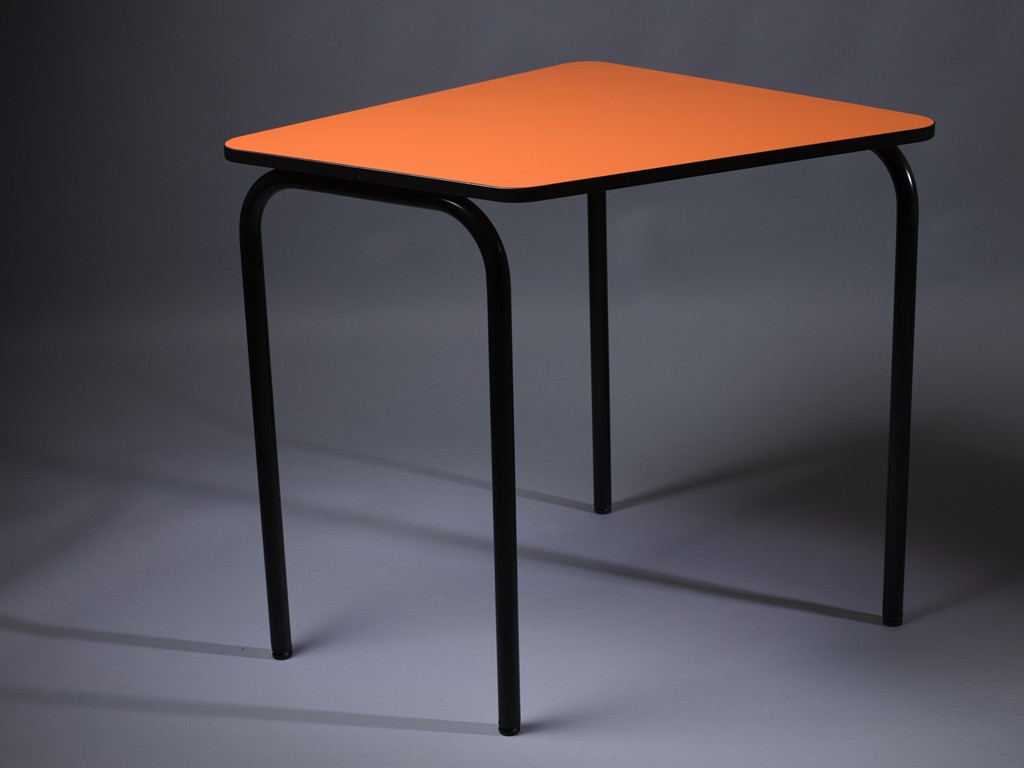

The dynamic classroom and group work encourage interaction between students. They pay more attention, making the teaching altogether more effective.

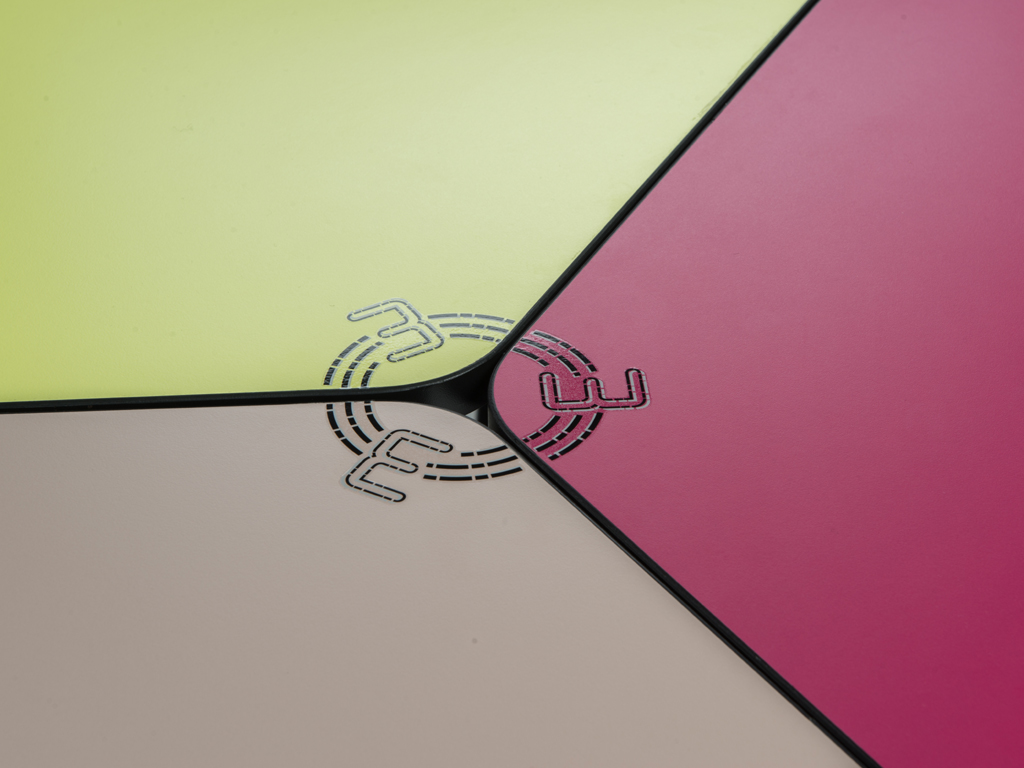
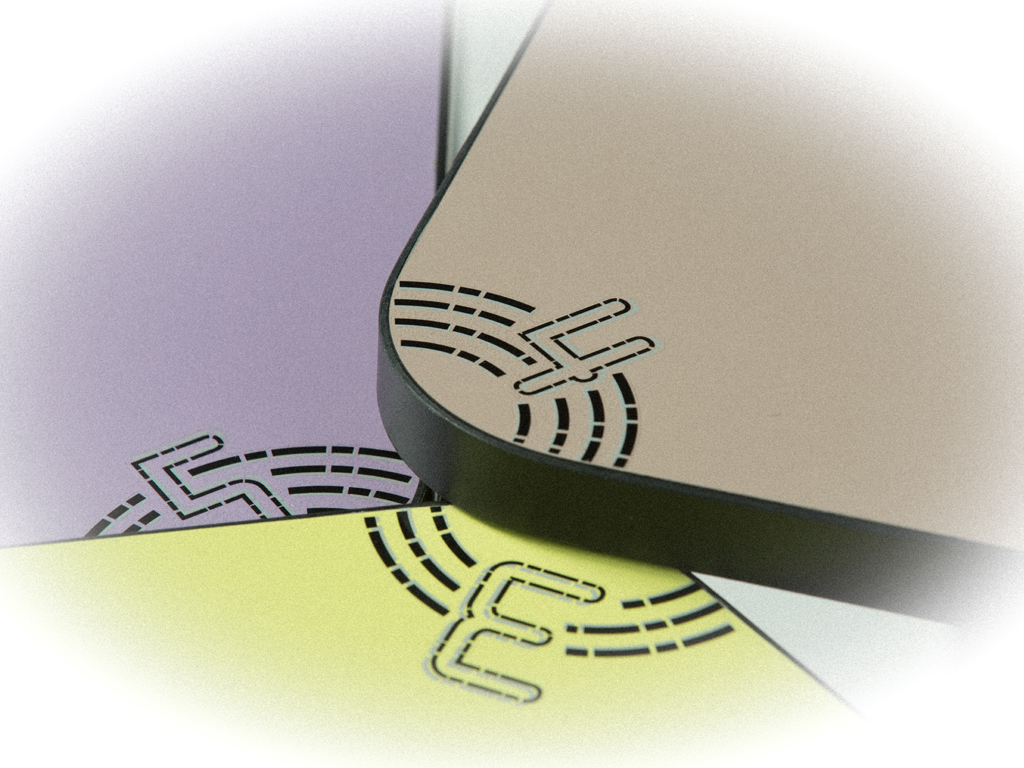
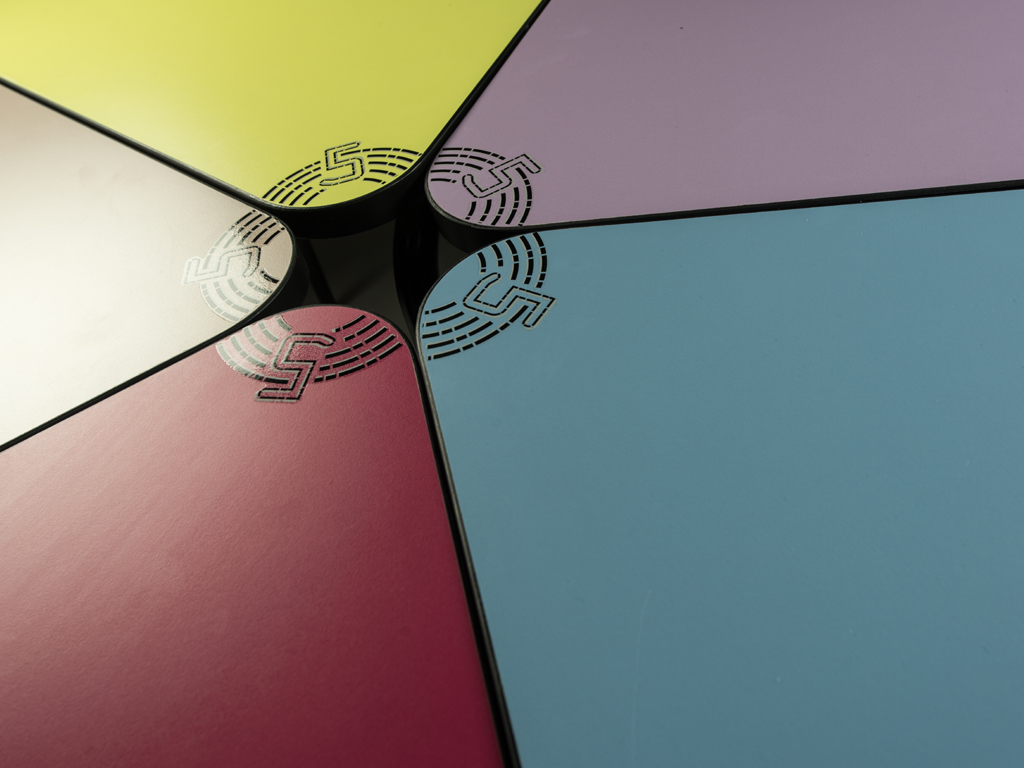
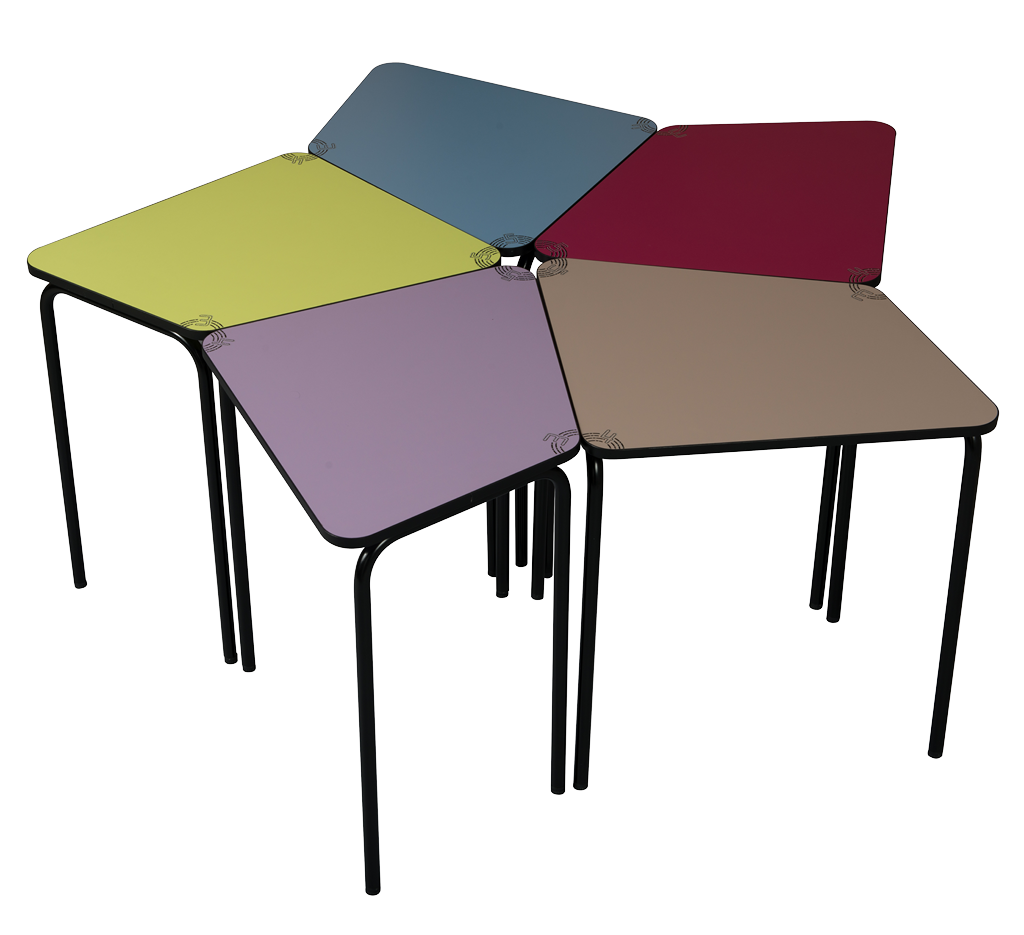
Modular
The shape of the tabletop allows different compositions:
the 3.4.5. tables can be lined up or grouped by 3, 4 or 5 (or more) to form coherent groups and adapt to the teaching approach.
Eco-design
The tables are eco-designed.
They are manufactured in France according to the NF EN1729 – 1&2 standards
Design by C+B Lefebvre
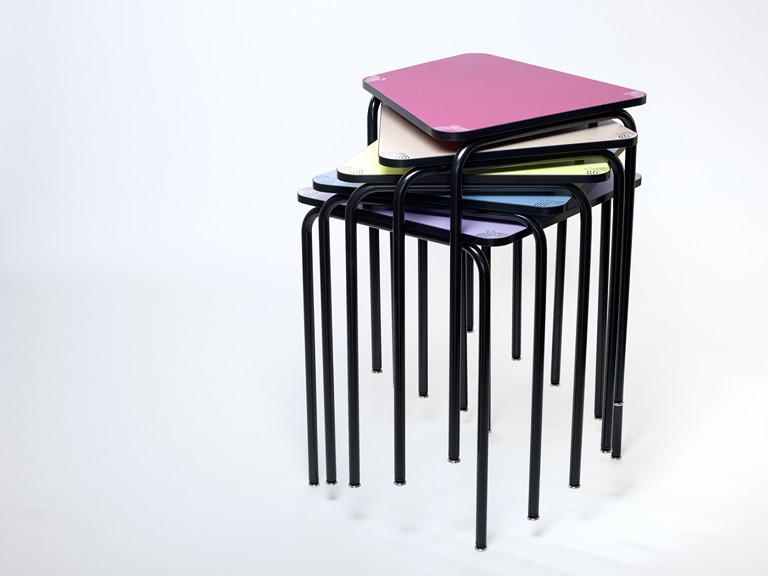
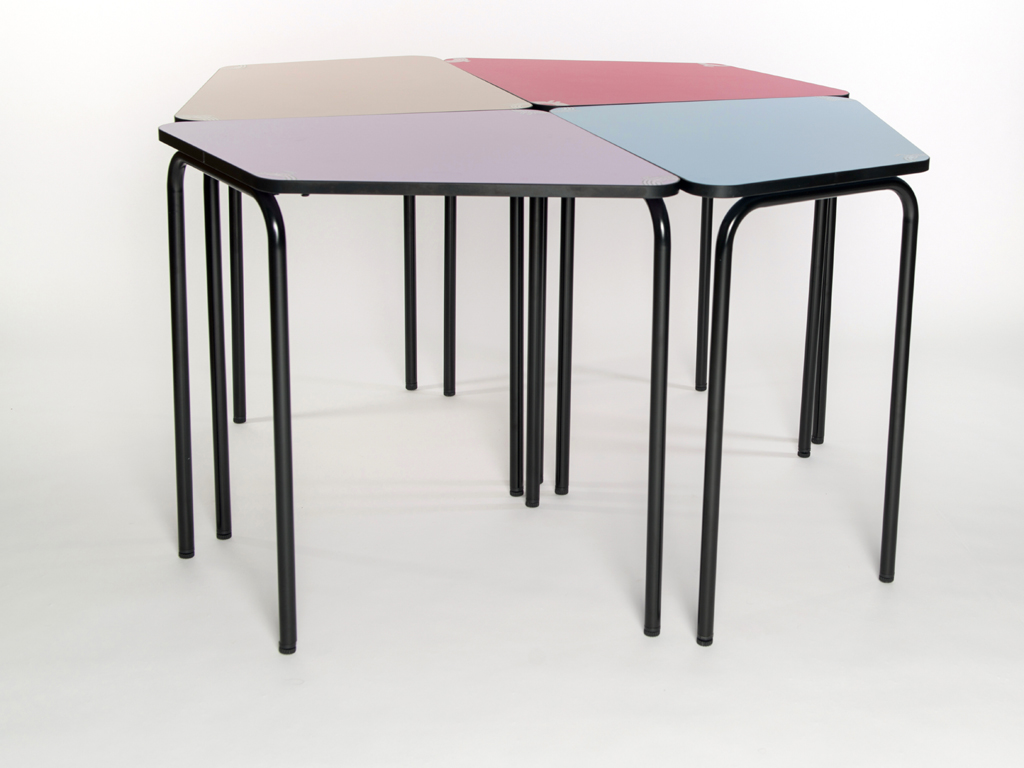
Adaptable
It is up to you to arrange the room or environment according to your needs. The markers on the tabletops help you to quickly change the configurations
Teaching aid
The ground-breaking design of the 3.4.5. table system offers a new vision of the classroom or venue and allows multiple teaching activities. The 3.4.5 tables take into account the strong interactions between students or participants
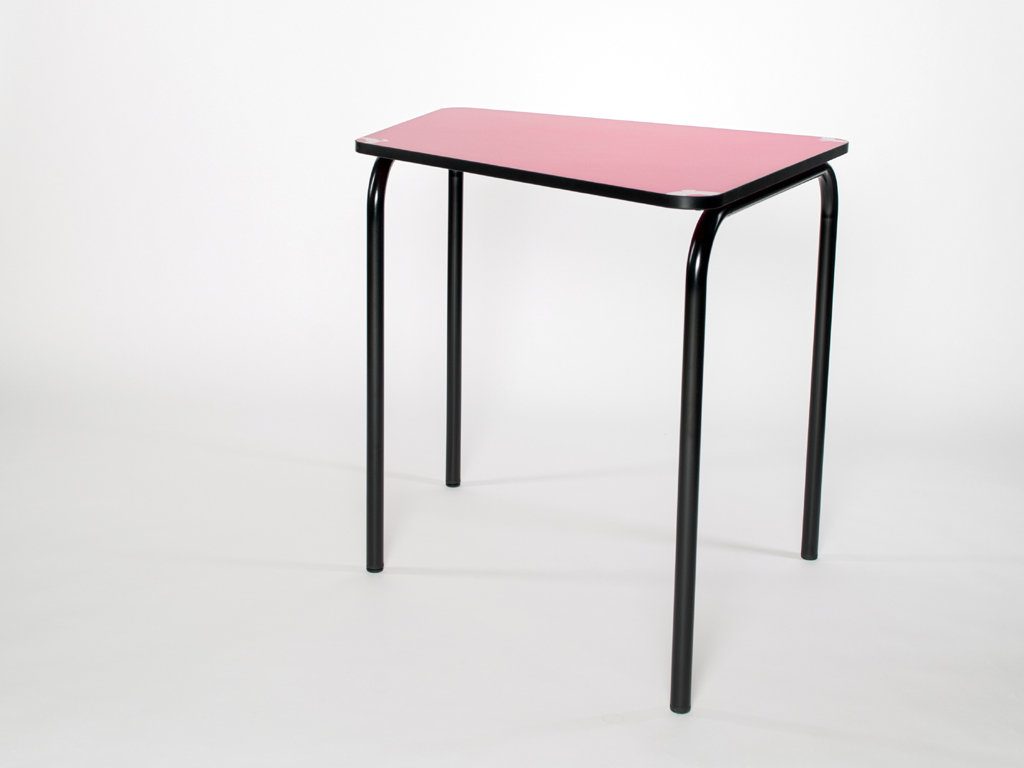
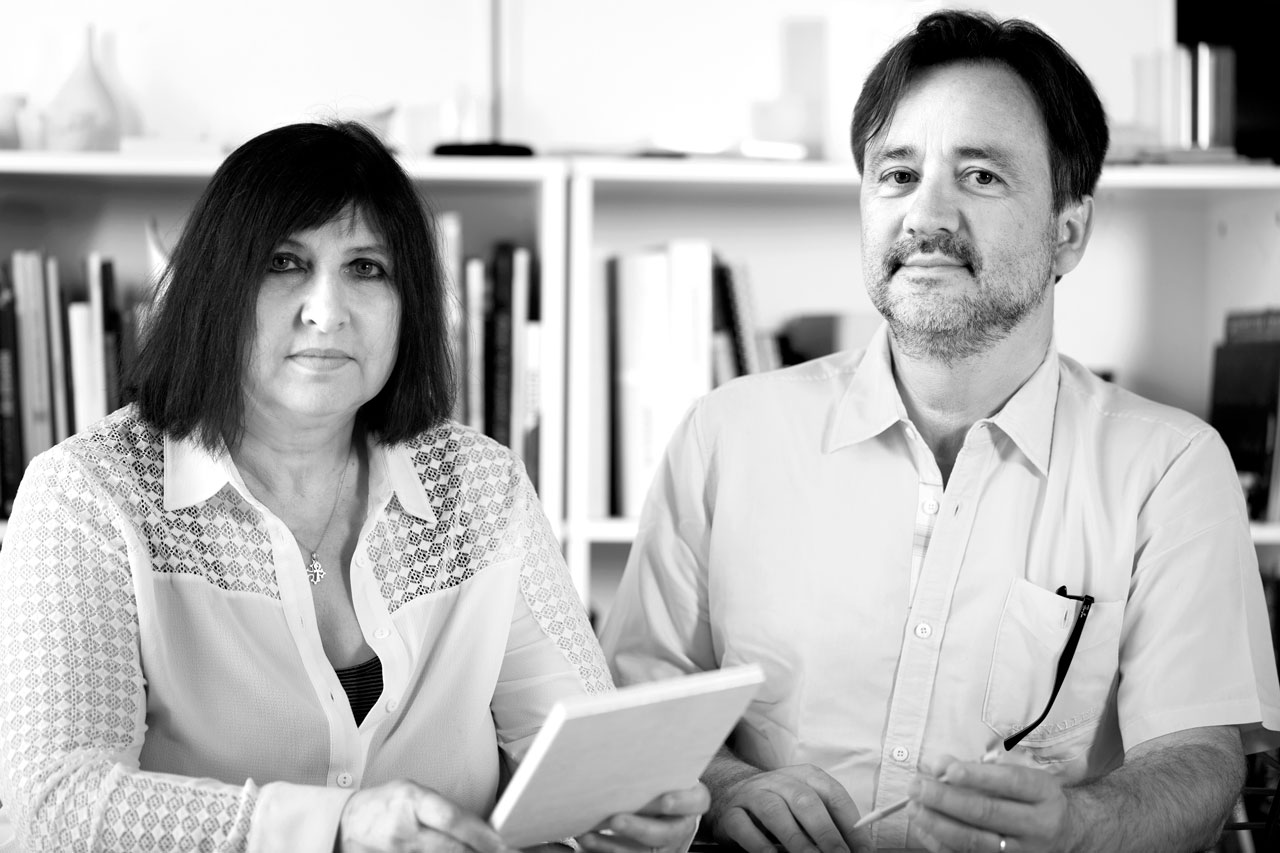
Bruno Lefebvre
Designer
A word from the designer
“I approached this project without any preconceptions and the use of the Agile Design® method allowed me to brainstorm with a dozen or so different stakeholders, all involved in different ways in the teaching profession, and expose the concepts to real-life teaching situations and the demands for change.
The project naturally evolved and emerged as this new form, capable of structuring or destructuring the classroom environment.
The result is not just one but a number of solutions. It is not a static proposal but a system that can be endlessly and dynamically adapted by teachers and students, in line with all the factors that came to my attention during this year of observations, exchanges and creations.”
